[最も人気のある!] self actualization humanistic psychology 608383-What is self actualization in psychology
Humanistic Psychology Abraham Maslow Key Points Approached the study of personality by focusing on subjective experiences, free will, and the innate drive towards "selfactualization" Expanded the field of humanistic psychology to include an explanation of how human needs change throughout an individual's lifespan, and how these needs influence the development ofThis means that selfactualization occurs when a person's "ideal self" (ie, who they would like to be) is congruent with their actual behavior Rogers describes an individual who is actualizing as a fully functioning personA brief introduction to Abraham Maslow's Hierarchy of Needs Humanistic Psychology focuses more on the good in people, rather than what is dysfunctional abou

Maslow S Hierarchy Of Needs An Overview Psychology Maslow S Hierarchy Of Needs Ap Psychology
What is self actualization in psychology
What is self actualization in psychology-Humanistic Psychology Humanism is a psychological approach that emphasizes the study of the whole person Humanistic psychologists look at human behavior not only through the eyes of the observer, but through the eyes of the person doing the behaving"Self Actualization"The humanistic approach in psychology developed as a rebellion against what some psychologistsSelfactualization is the complete realization of one's potential, and the full development of one's abilities and appreciation for life This concept is at the top of the Maslow hierarchy of needs, so not every human being reaches it



Wyatt Rudd S Psychology Blog Self Actualization In Today S Society
Simply put, self actualization means "to become more and more who one is, to become everything that one is capable of becoming" As a branch of psychology, the humanistic perspective allows for a more positive outlook (as compared to other branches such as psychoanalysis and behaviorism) and focuses on a person's potential, stressing growth and theHumanistic psychology begins with the existential assumptions that people have free will and are motivated to acheive their potential and selfactualize The humanistic approach in psychology developed as a rebellion against what some psychologists saw as the limitations of the behaviorist and psychodynamic psychologySelfactualization refers to the need to fulfill one's total potential Rather than focusing on what's wrong with people, humanistic psychology takes a more holistic approach, Motivation Maslow's Hierarchy of Needs May 24, 17 Kendra Cherry
· The results provide support for Maslow's proposed characteristics of selfactualization and basic motivational framework, bringing the concept of selfactualization so frequently discussed by the founding humanistic psychologists firmly into the 21st century"Humanistic and positive psychology both focus on similar concerns," Friedman explains (08), "but have differences regarding methodology and epistemology In terms of methodology, humanistic psychologists tend to prefer qualitative over quantitative approaches, whereas positive psychologists tend to hold the opposite preferenceWith its roots running from Socrates through the Renaissance, this approach emphasizes the individual's inherent drive toward selfactualization, the process of realizing and expressing one's own capabilities and creativity Humanistic psychology helps the client gain the belief that all people are inherently good
Expanded Maslow's Hierarchy of Needs, Human Needs, Self Actualization, Humanistic Psychology This video describes an expanded version of Maslow's Hierarchy of Needs This version shows 8 needs instead of the original version that only contains 50519 · Carl Rogers () is considered one of the most influential psychologists of the th century He is best known for developing the psychotherapy method called clientcentered therapy and as one of the founders of humanistic psychologyCheck out that awesome FREE 3in1 personality quiz (and let me predict things about you) https//practicalpiecom/freepersonalitytest/The full Personalit



11 Humanistic Psychology Ideas Humanistic Psychology Psychology Carl Rogers
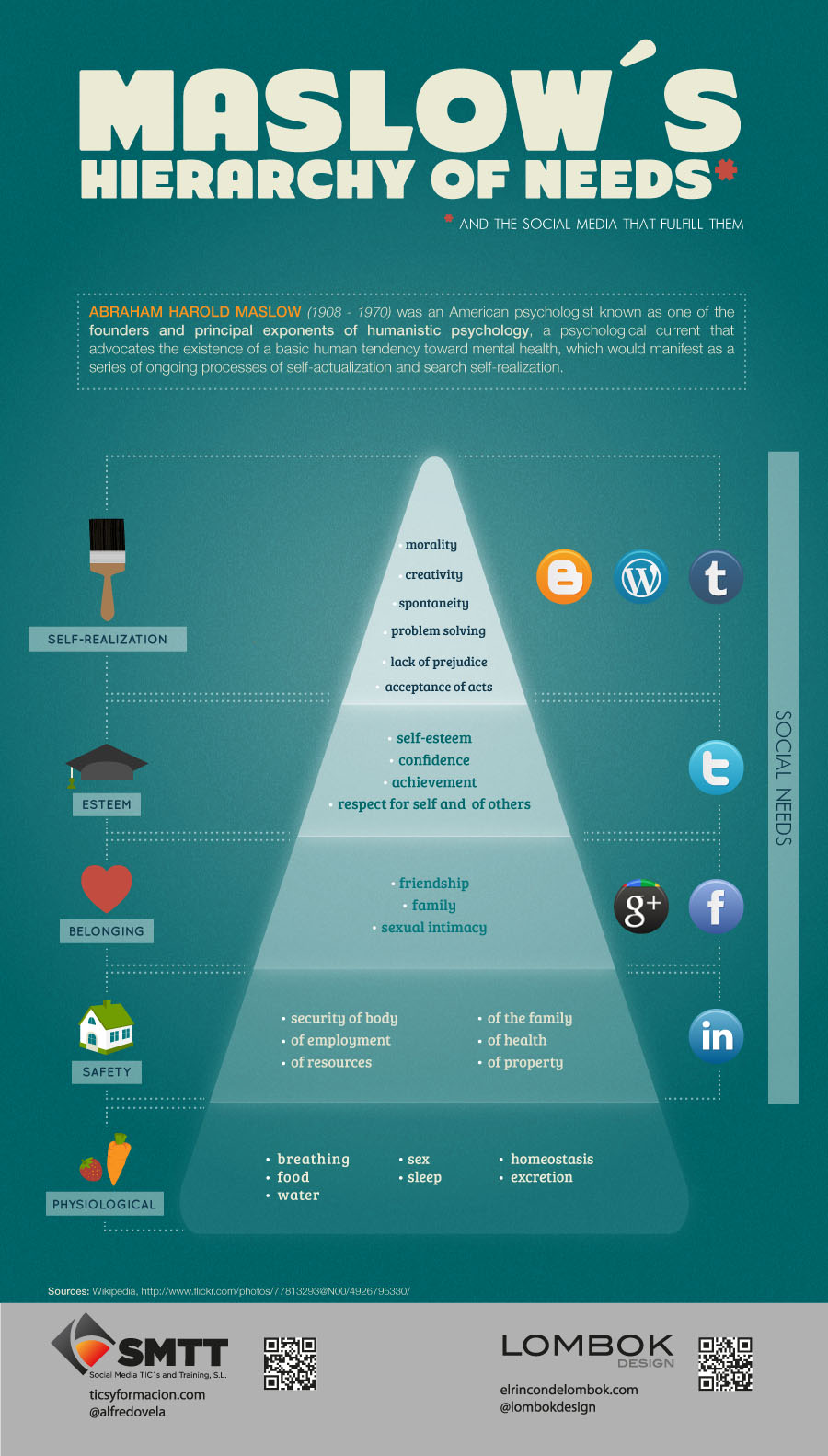


Maslow S Hierarchy Of Needs Mapped To Social Media Sites In Infographic Social Media Chimps
Selfactualization and selfrealization are two concepts in psychology, philosophy and spirituality that refer to the achievement of the possibilities and potentials of the self Both terms may mean the goal or motivation that drives a human being, the process of achieving one's potentials, or the state achievement of said potentialsHumanistic Therapy is a therapy style that emphasizes the basic goodness of human beings and their drive for creativity and selfactualization With its roots heavily in phenomenological and existential thought, it was pioneered by Abraham Maslow and Carl Rogers, who broke with the earlier psychological thinkers like Freud and Skinner, whom they felt were overly pessimisticCharacteristics of SelfActualizers I viewed selfactualizers as the supreme achievers in the human race I studied standout individuals in order to better understand what characteristics they possessed that allowed them to achieve selfactualization In my research, I found that many of these people shared certain personality traits



Is Self Actualisation The Top Of Maslow S Pyramid Tutor2u
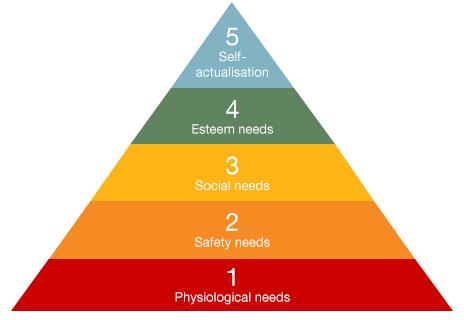


Abraham Maslow And The Pyramid That Beguiled Business c News
The highest need is the need for selfactualization, which is the achievement of our fullest potential Another humanistic theorist was Carl Rogers One of Rogers's main ideas about personality regards selfconcept, our thoughts and feelings about ourselvesHumanistic psychology is a psychological perspective which rose to prominence in the midth century, drawing responsibility, human potential, spirituality, and selfactualization1 2 Conceptual origins The humanistic approach has its roots in phenomenological and existentialist thought 3 (see Kierkegaard, Nietzsche, · Carl Rogers and Abraham Maslow are two famous humanist psychologists While they both viewed the study of humans from a holistic perspective, as you will read later, they defined selfactualization differently Within the American Psychological Association is Division 32 – the Society for Humanistic Psychology



Solved Question 11 3 1 Pts Humanistic Psychologists Belie Chegg Com



Self Actualization
Humanistic psychology A psychological perspective which rose to prominence in the midth century in response to psychoanalytic theory and behaviorism;CLICK MORE INFO FOR RELATED VIDEO LINKSBe My Friend on MySpacehttp//wwwmyspacecom/psychtruthHuman Needs, Characteristics of Self Actualization, PsychologyThis minilecture describes some of the basic elements of Humanistic Learning Theory Dr Andy Johnson, WWWOPDTcom


16 Characteristics Of Self Actualization A Laughing Soul



Kid Examples Of Humanistic In Psychology Page 1 Line 17qq Com
A prominent term in humanistic psychology that refers to the basic human need for selffulfillment The term selfactualization was used most extensively by Abraham Maslow, who placed it at the apex of his hierarchy of human motives, which is conceived as a pyramid ascending from the most basic biological needs, such as hunger and thirst, to increasingly complex ones,Self Actualization is a somewhat vague term that is used in slightly different ways by different psychologistsOriginally used by Kurt Goldstein, it is loosely defined as "the realization or2702 · Humanistic psychology is a perspective that emphasizes looking at the whole individual and stresses concepts such as free will, selfefficacy, and selfactualization Rather than concentrating on dysfunction, humanistic psychology strives to help people fulfill their potential and maximize their wellbeing
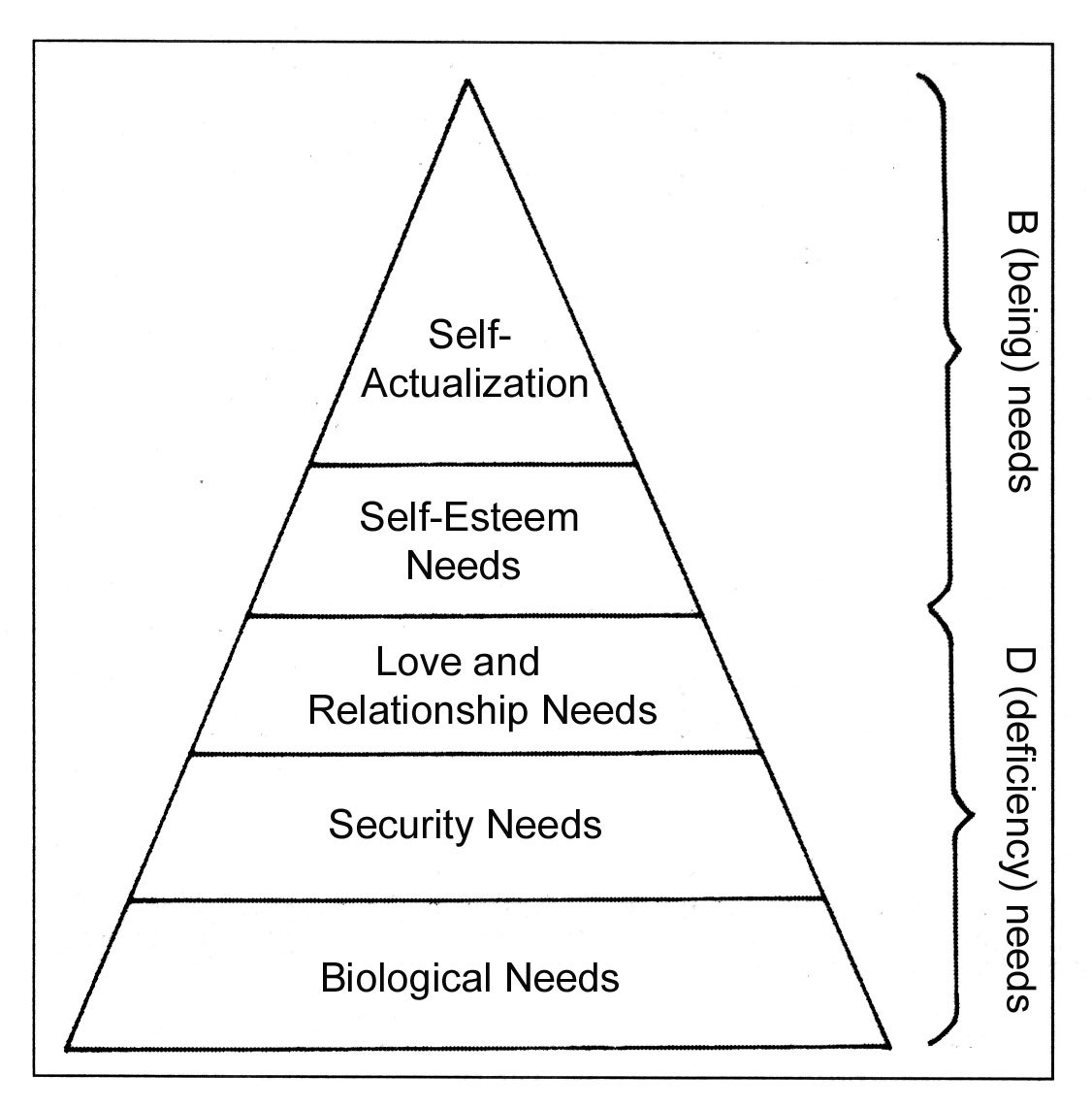


Maslow S Motivational Psychology In Chapter 09 Motivation And Emotion



Maslow S Hierarchy Of Needs Simply Psychology
5 Self Actualization Needs The need for selfactualization is activated when all the above needs are met A musician must make music, an artist must paint, and a poet must compose, "Maslow defines selfactualization as a person's needs to be and do what they born to do "These needs make themselves felt in signs of restlessness"Selfactualization, an intimate concept linked to selfrealization, opens the way of nonconformism and freethinking, of achieving personal fulfillment and professional performance (Rogers) The stage of selfawareness, overcoming the ego, justifies our access to aesthetic, moral values, to metaneeds and metavalues, towards the Truth, Good, and Beautiful of the ancient2 Journal of Humanistic Psychology 00(0) experiences Selfactualization scores also predicted workrelated outcomes and creativity across multiple domains of achievement The results provide support for Maslow's proposed characteristics of selfactualization and basic motivational framework, bringing the concept
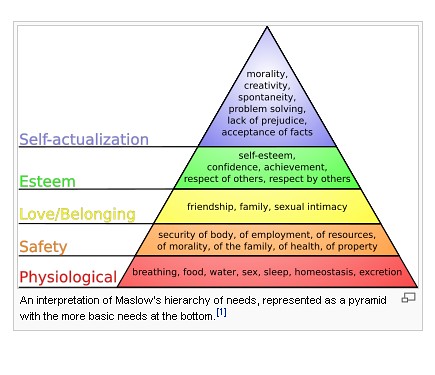


Ap Psychology Humanistic School Flashcards Quizlet



Yanss 3 How To Build A Sailboat Of Self Actualization To Explore The Sea Of Human Potential You Are Not So Smart
Humanistic psychology is a psychological perspective which rose to prominence in the midth century, drawing on the work of early pioneers like Carl Rogers and the philosophies of existentialism and phenomenology It adopts a holistic approach to human existence through investigations of meaning, values, freedom, tragedy, personal responsibility, human potential, spirituality, and selfThis approach emphasizes an individual's inherent drive towards selfactualization and creativity selfactualization According to humanistic theory, the realizing of one's full potential;Humanistic Psychology & Self Actualization Name Institution Humanistic Psychology & Self Actualization Introduction The essay, Humanistic Psychology and SelfActualization, by Jonathan Freedman provides a considerable argument concerning the connection or association between humanistic psychology and the concept of selfactualization In a concise elucidation, humanistic psychology



Humanism In Psychology



Transcend The New Science Of Self Actualization Kaufman Scott Barry Amazon Com Books
· The focal point of this article is Abraham Maslow's famous study of selfactualizing people Maslow was profoundly correct in perceiving that there was something special and admirable about the individuals whom he selected for study In calling his subjects selfactualizing, however, Maslow failed to capture just what was special about them · "Selfactualization" represents a concept derived from hmanistic psychological theory and, specifically, from the theory created by Abraham Maslow Selfactualization, according to Maslow, · Selfactualization, in Maslow's hierarchy of needs, is the highest level of psychological development, where personal potential is fully realized after basic bodily and ego needs have been fulfilled Selfactualization was coined by the organismic theorist Kurt Goldstein for the motive to realize one's full potential "the tendency to actualize itself as fully as
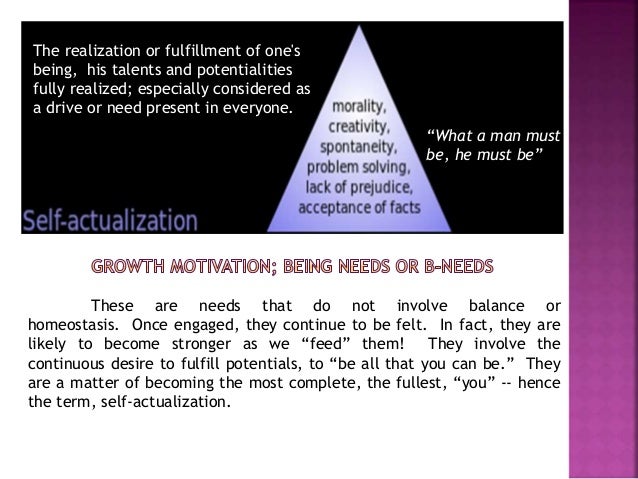


Abraham Maslow The Humanistic Psychology


Humanistic Perspectives On Personality Boundless Psychology
Can include creative expression, quest forHumanistic psychology is a perspective that emphasizes looking at the whole individual and stresses concepts such as free will, selfefficacy, and selfactualization Rather than concentrating on dysfunction, humanistic psychology strives to help people fulfill their potential and maximize their wellbeingHuman Needs, Characteristics of Self Actualization, Psychology ♥ Start Your Two Week Free Trail http//wwwwellnessplustv♥ Help Support This Channelhttp//w



Humanistic Approach Adolescent Psychology



Hierarchy Of Needs Humanistic Psychology Maslow S Hierarchy Of Needs Counseling Help
· Abstract Humanistic psychology, it could be maintained, was the first psychological theory that gave serious consideration to the value and implications of selfacceptance in psychology, at least in its more explicit and positive constructions · Humanistic psychology places emphasis on the journey toward selfactualization The term 'selfactualization' refers to a sense of personal fulfillment It is achieved when a person feels they have reached their potential SelfActualization In humanistic psychology, a goal for an individual is to reach selfactualization · The selfactualization theory The selfactualization theory stems from humanistic psychologyAbraham Maslow was one of its most important figures In books such as Toward a Psychology of Being, he pointed out the following ideas Selfactualization means being able to meet our most important needs, whether it be social status, emotional aspirations, or goals,


Integral Options Cafe Examining Developmental Aspects Of Self Actualization Age Matters


Difference Between Self Actualization And Self Esteem Difference Between
Humanistic psychology as liberal ideology The sociohistorical roots of Maslow's theory of selfactualization Journal of Humanistic Psychology, 19 (3), 43–55 Google ScholarHumanistic psychology is a psychological perspective which rose to prominence in the midth century, drawing on the work of early pioneers like Carl Rogers and the philosophies of existentialism and phenomenology It adopts a holistic approach to human existence through investigations of meaning, values, freedom, tragedy, personal responsibility, human potential, spirituality, and self · The humanists wanted to offer a more optimistic, agentive perspective on human striving The theory of selfactualization emerged out of this humanistic perspective Humanistic psychologists claimed that people are driven by higher needs, particularly the need to



Carl Rogers The Humanistic Approach Two Basic Human Needs Self Actualization The Need To Fulfill All Of One S Potential Positive Regard The Need Ppt Download



Humanisthealer Humanistic Psychology Focus The Facebook
To introduce HUMANISTIC LEARNING THEORY To discuss the contributions of MASLOW & ROGERS in the field of Learning Theories Is a psychological perspective which rose to prominence in the midth century The approach emphasizes an individual's inherent drive towards selfactualization and creativity · On selfactualization A transambivalent examination of a focal theme in Maslow's psychology Journal of Humanistic Psychology, 1973 , 13(2), 17


Humanistic Theory The Many Personality Theories



Self Actualized Leadership A Formula For Success The Workplace Coach Executive Coaching Atlanta



Self Actualized By Poker The Path From Categorical Learning To Free Thinking Self Actualizing People In History Gelperin Roman Amazon Com



Self Actualization



How Abraham Maslow And His Humanistic Psychology Shaped The Modern Self Brain Pickings


Focusing On The Self Humanism And Self Actualization Open Textbooks For Hong Kong



Self Actualization Pyramid Maslow S Hierarchy Of Needs Psychology Software Testing Abraham Maslow Brittle Transparent Png



Self Actualisation Taking Responsibility For Your Life Rosanna Davison Nutrition


Maslow S Hierarchy Of Needs Vision
.jpg?ezimgfmt=rs:382x233/rscb24/ng:webp/ngcb24)


Maslow S Hierarchy Of Needs Simply Psychology
/five-students-93192239-5b200c420e23d90036cd89e6.jpg)


Understanding Maslow S Theory Of Self Actualization
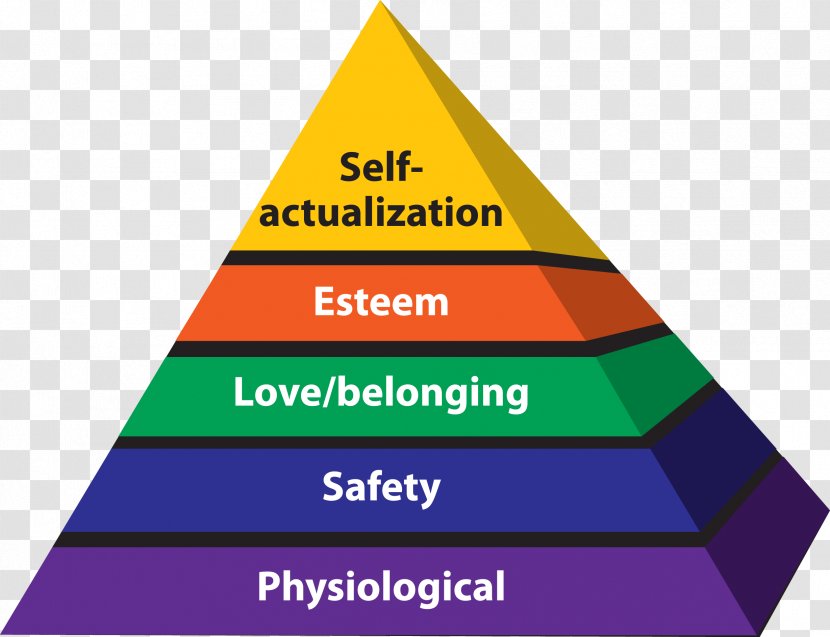


Maslow S Hierarchy Of Needs Humanistic Psychology Homo Sapiens Area Pyramid 5 Step Transparent Png
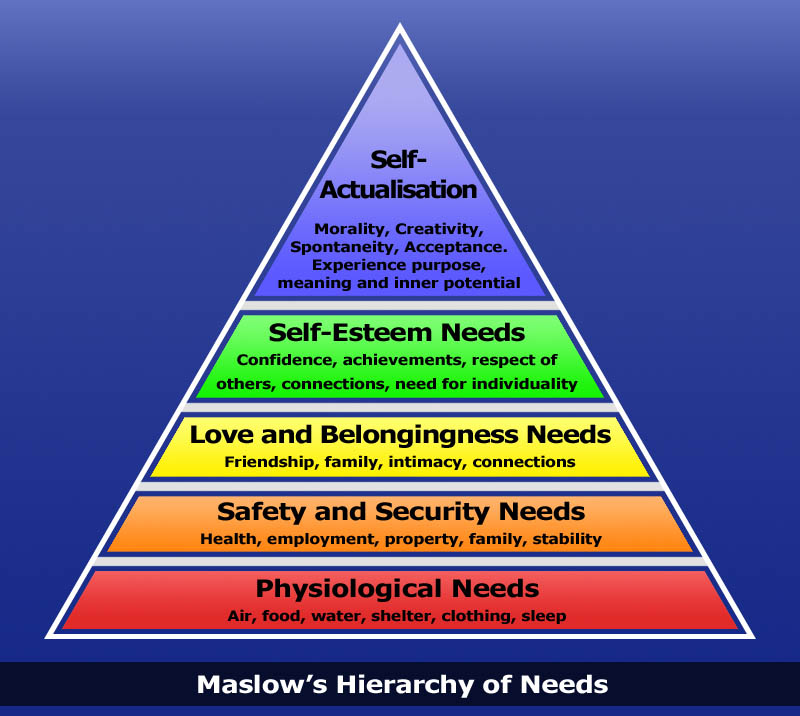


Humanistic Psychology Self Help And The Danger Of Reducing Religion To Psychology Morten Tolboll



Humanistic Psychology Cute766


H Is For The Humanistic Psychology Approach The Positive Encourager
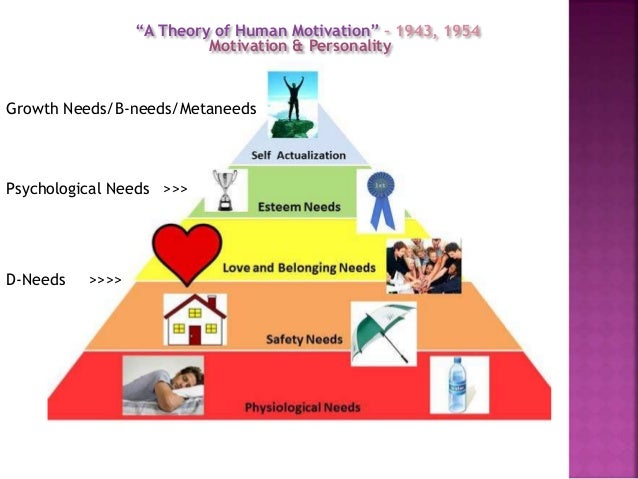


Abraham Maslow The Humanistic Psychology
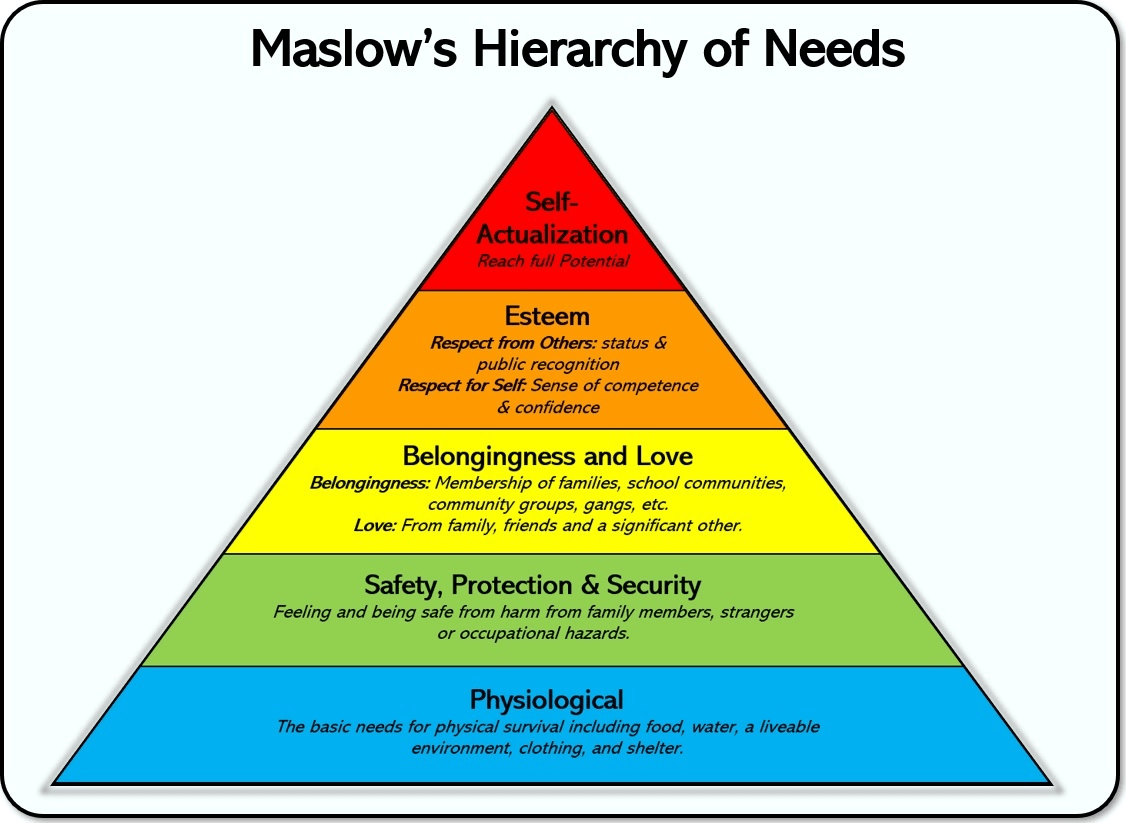


4 Holistic Classroom Ideas Inspired By Maslow S Humanist Approach Getting Smart



Maslow And Self Actualization My College Class Notes



Learn About Hollingworth S Debunking Of Humanism Chegg Com



What Does It Mean To Be Self Actualized In The 21st Century Scott Barry Kaufman



Humanistic Psychology Real Life Examples Page 1 Line 17qq Com
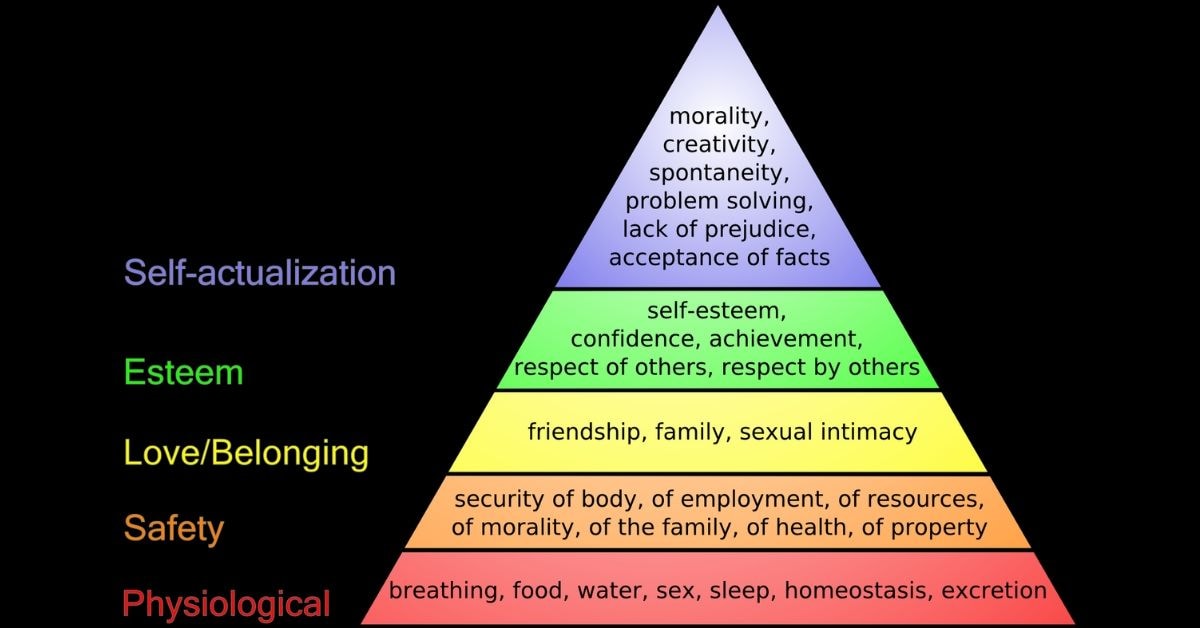


The Problem With Do What You Love The Perils Of Allowing Maslow S Hierarchy Of Needs Self Actualisation To Shape Careers Living News Firstpost
/4136760-article-what-is-maslows-hierarchy-of-needs-5a97179aeb97de003668392e.png)


The 5 Levels Of Maslow S Hierarchy Of Needs
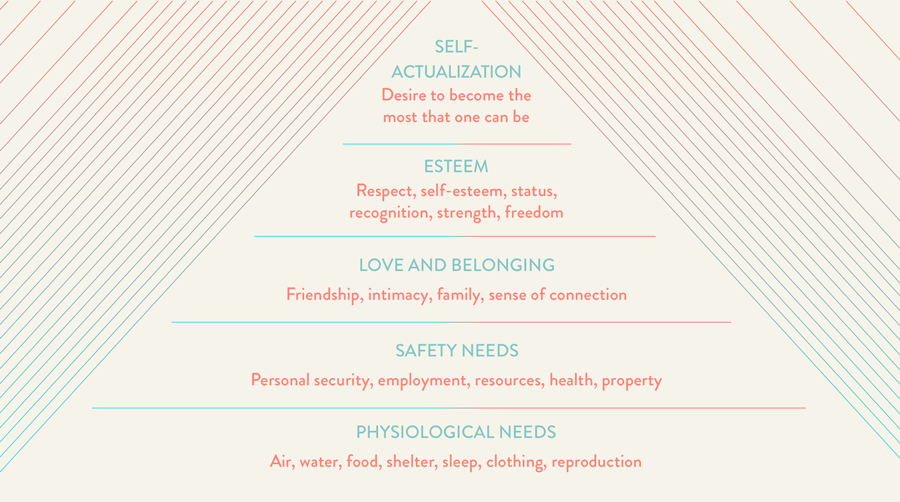


Abraham Maslow S Hierarchy Of Needs A Different Kind Of Pyramid Scheme Crm Org
/GettyImages-501595511-5717007f3df78c3fa2e7db03.jpg)


Abraham Maslow Quotes About Psychology
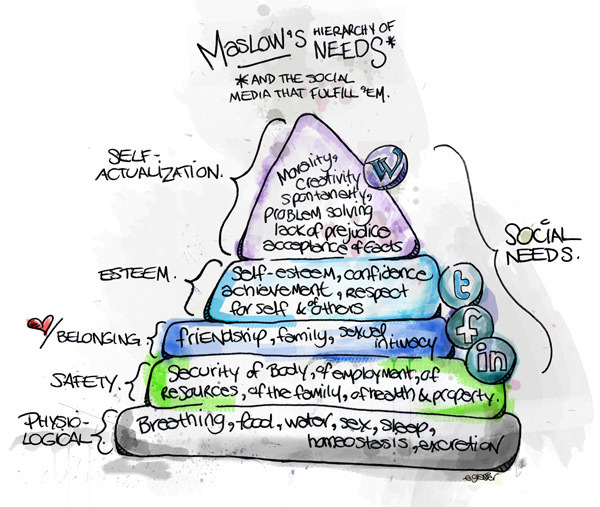


Humanistic Theory Of Motivation
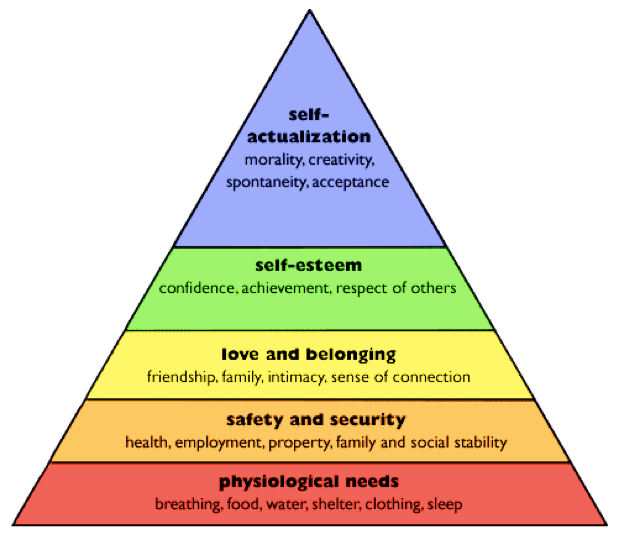


Inverting Maslow S Hierarchy Self Actualization Versus Ordinary By Nick Nielsen Medium



Self Actualization I Humanistic Psychology I Human Needs I Sanjeev Jhamat I Punjabi Hindi Youtube



Abraham Maslow S Humanistic Psychology The Psychology Notes Headquarters



Transcend The New Science Of Self Actualization Kaufman Scott Barry Amazon Com Books



8 2 The Humanistic Approach And The Social Cognitive Approach To Personality Flashcards Quizlet
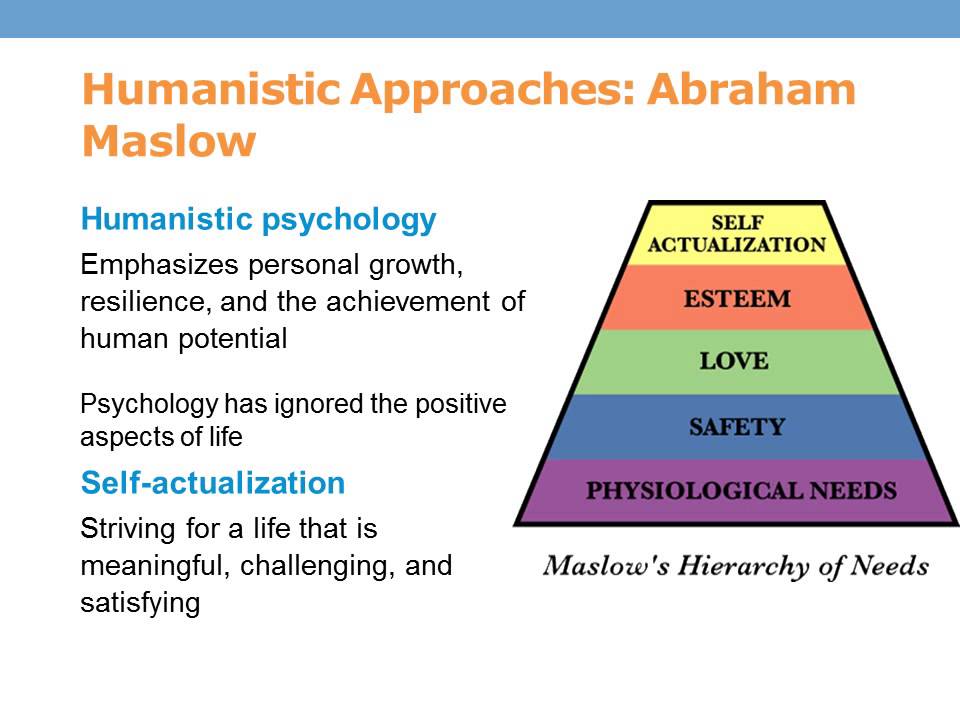


What We Can Learn From Humanistic Psychology And How To Apply It Mytherapist



Maslow S Hierarchy Of Needs The Sixth Level The Psychologist



Maslow S Hierarchy Of Needs Maslow S Hierarchy Of Needs Maslow S Hierarchy Of Needs Humanistic Psychology



Humanisticpsychology Ashykid25



Maslow S Hierarchy Of Needs Wikipedia



Flow State Self Actualization Flowcode


Humanistic Perspective Abnormal Psychology



Maslow S Final Theory Z



Humanistic Psychology Flashcards Quizlet



What Even Is Self Actualization Humanistic Theory Youtube



Abraham Maslow And Becoming A Self Actualized Person Living Meanings



Maslow S Hierarchy Of Needs An Overview Psychology Maslow S Hierarchy Of Needs Ap Psychology



Education


Abraham Maslow



Self Actualization Awareness Ascension Through Awareness By Michael Woronko Borealism Medium



Self Actualization 15 Traits Of Self Actualized People



Maslow S Final Theory Z
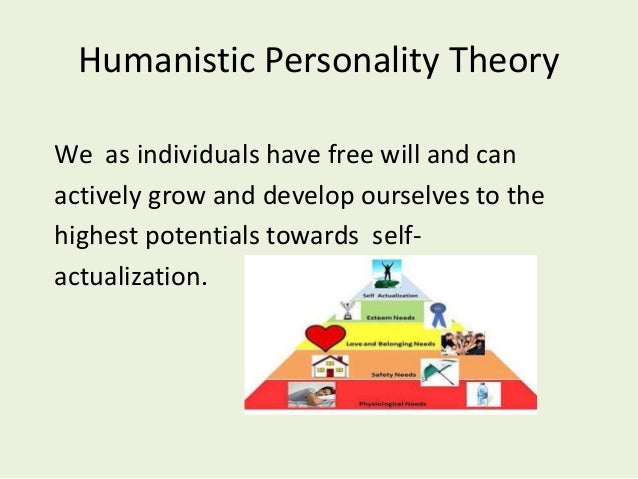


Humanistic Approach To Reduce Recidivism


Educational Psychology Interactive Maslow S Hierarchy Of Needs



Wyatt Rudd S Psychology Blog Self Actualization In Today S Society



Maslow S Other Mistake Why Self Actualization Is Harder Than It Sounds Big Think



Self Actualization Simply Psychology



Humanistic Perspectives Disorders And Treatments Peyton Iott



The Humanistic Approach



Maslow S Self Actualised Personality Revived The Neuroscience School



What Is Self Actualization And How You Can Use It Big Think



130 Abraham Maslow Humanistic Psychologist My Learning Theorist Ideas Abraham Maslow Self Actualization Hierarchy


Humanistic Approach To Personality The Tiny Professional


Humanistic Psychology


What Is Self Actualization Jor El Caraballo



Abraham Maslow S Humanistic Psychology Theory Flashcards Quizlet



Person Centred Concepts Self Actualisation Conditions Of Worth And Self Structure Health Psychology Consultancy
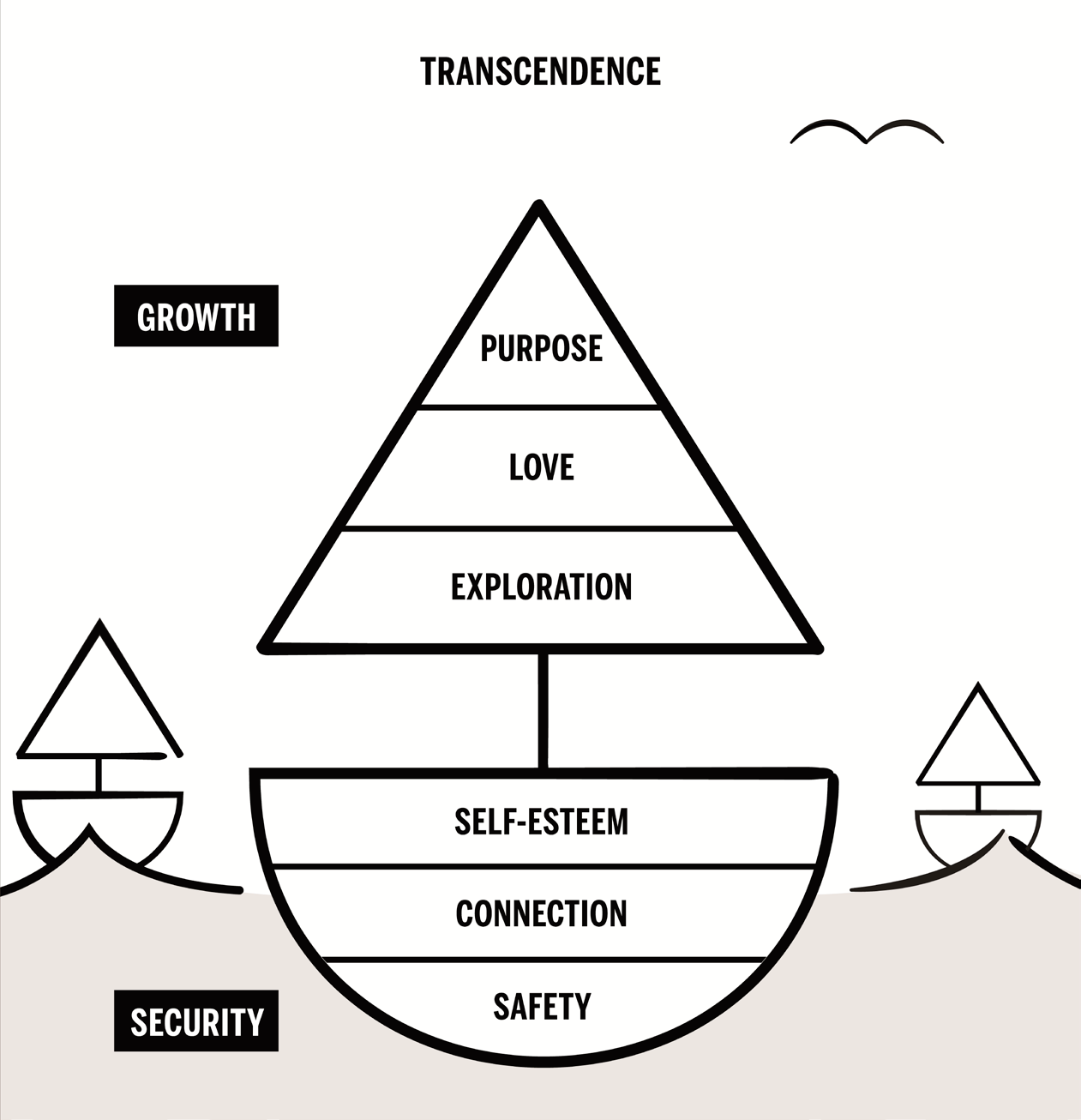


Maslow S Hierarchy Of Needs Was Never Meant To Be A Pyramid Forge


Difference Between Self Actualization And Self Realization Difference Between



Humanistic Psychology



5 Needs Of Maslow S Hierarchy Of Needs Theory Explained



Expanded Maslow S Hierarchy Of Needs Human Needs Self Actualization Humanistic Psycholog Humanistic Psychology Maslow S Hierarchy Of Needs Motivation Theory



Humanistic Psychology Self Actualization Humanistic Psychology



Abraham Maslow And The Pyramid That Beguiled Business c News



Carl Rogers And Abraham Maslow Personality Theory In A Cultural Context Openstax Cnx


Humanistic Approach



Self Actualization What It Is And How To Achieve It



End Hereditary Religion Abraham Maslow Is The Leading Figure In The Tradition Of Humanistic Psychology And The Modern Positive Psychology Movement Owes A Huge Debt To His Theories His Hierarchy Of



Humanisthealer Humanistic Psychology Focus The Facebook
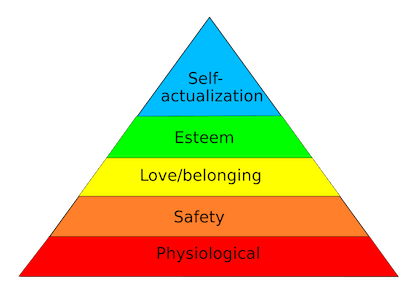


Abraham Maslow His Theory Contribution To Psychology Upd 19



Maslow S Hierarchy Of Needs Simply Psychology


コメント
コメントを投稿